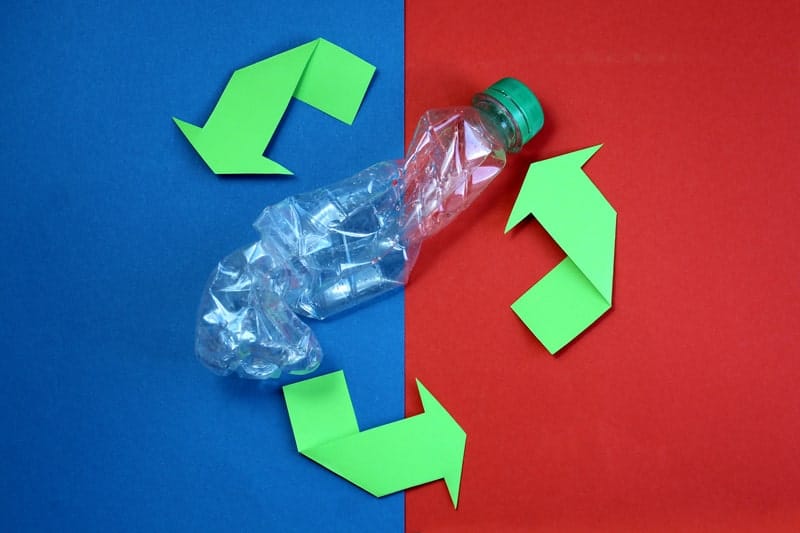The CES 2020 in Las Vegas saw the presentation of a new blockchain-based solution for plastic recycling.
The famous event began yesterday in Las Vegas, and among the various projects presented there was one that caught the attention of the attendees. It is the Circularise Plastics initiative, by Circularise, Covestro and Domo, which aims to track plastic waste using blockchain technology.
The news of this presentation spread very quickly, with many tweets posting about it using the #CES2020 hashtag.
Circularise Plastics allows plastic-based manufacturers to create a digital version of their materials so that they can demonstrate sustainability across the entire supply chain.
It is a blockchain-based traceability solution for plastics, led by the German polymer manufacturer Domo, the German company Covestro and the Dutch startup Circularise, which is responsible for transparency and traceability of the supply chain.
The initiative had actually already been presented in Düsseldorf in October last year, but it is only thanks to CES that it is enjoying a worldwide coverage.
The use of the blockchain was chosen to ensure transparency on the origin of a material and its environmental impact, given that it is used at all stages of the supply chain.
Furthermore, the Circularise whitepaper states that the idea is based on decentralized blockchains and that although their technology is not tied to a specific blockchain, Ethereum’s technology is actually the ideal choice.
This is not the first project of this kind to have been launched. One such project is EarthBi, for example, but there are many others. However, its particularity also lies in the fact that it uses a real blockchain, and not just an ordinary distributed ledger.
In fact, too often the term blockchain is misused for marketing purposes only, with many projects claiming to be based on such technology while being based on distributed ledgers that technically are not blockchains.
DLT and blockchain are not the same things, and the main difference lies in their decentralization: projects like Circularise Plastics are based on actual blockchains because they use a decentralized distributed ledger like the Ethereum blockchain. Whereas many others claim to use blockchain technologies while using non-decentralized distributed ledgers, which are clearly different from Ethereum, Bitcoin, EOS or similar.
While it is true that a blockchain is a DLT, it is also true that not all DLTs are decentralized and therefore not all of them can be considered as real blockchains.
lized and therefore not all of them can be considered as real blockchains.




